On a warm Saturday afternoon, a few years ago, I was working in a school (it needs to remain nameless as it would be easy to attribute names to places, and I’ve no desire to name and shame anyone in this piece). Anyway, I was facilitating a student-to-staff training session. It was quite a well-known school, not previously known for progressive pedagogy, but here were an entire cohort of teachers being respectfully asked to allow students to co-design lessons, hold regular conversations about what great learning looked like, and remember the need for engaging lessons.
The teachers took all of this critical feedback remarkably well, mainly because the students were so considerate and civil in the phrasing of their feedback – as Ron Berger says, ‘kind, specific and helpful’. I’ve worked in these schools (for they’re a MAT) on a number of occasions, and the students always strike me as polite and keen to hear other’s views.
I was reminded of this experience on recent visits to Twitter. I don’t know if I’m just following the wrong people but it seems to me that there’s a latent aggression in too many exchanges involving teachers these days, that’s both disturbing and surprising. I’m currently training some teachers in Australia about bringing the Socratic seminar into classrooms, so the irony is not lost on me. All educators stand on the shoulders of giants like Socrates, and I think he’d be appalled by the willingness – of a minority – to immediately dismiss views that don’t accord with their own, and the reluctance to understand the others position. Daniel Willingham defined critical thinking as “seeing both sides of an issue”, and that seems to me to be lost in the froth of tetchiness. With some teachers on Twitter, you have to get through an awful lot of ‘critical’ before you get to the thinking.
Now, let’s keep it in perspective. I’m not talking about the kind of cyber-bullying that celebs and D-listers have to endure. But still, educators are supposed to stand for courtesy, reasoning and respect. And I particularly recalled those students because one of those who was having a go at Ross McGill recently was actually a teacher at the school trust mentioned above. Ross (aka @TeacherToolkit, one of the most followed educators on Twitter) gets way more of this stuff than me, but on this occasion I felt the need to support his view (the issue is not important, we’re talking about tone). In the space of an hour he, and I, were called ‘intellectually barren’, ‘gutless’, ‘beyond embarrassing’, ‘unprofessional’, ‘very stupid’, ‘spiteful’, ‘daft’ . Ross got the peak praise: “I would remove my child from a school whose educational culture could be in any way influenced by someone peddling that gibberish.” This was about the point that I asked him to try a little civility and was met with: “if you find me uncivil pls feel free to take your inane arguments elsewhere.”
Like I said this is nothing that Kanye West would even blink at but, call me old-fashioned I still find this sort of thing coming from teachers unsettling. Do they talk to their students like that? If not, why dish it out to fellow professionals?
In the interests of balance, I was also taken to task for categorising those indulging in this (because they frequently hunt in packs) as an ‘arrogant herd’. But here’s the context: another teacher had just dismissed a blog post by the well-respected director of the film ‘Schooling The World’ as ‘the most dreadful nonsense’. Those jumping in were equally dismissive, while there were a few asking why people were dismissing the person, rather than presenting a counter-argument. And then the veil slipped: “calling out anti-scientific mumbo jumbo is an honourable pursuit.”
Ah, the ‘call out’. During the past week, I’ve twice had this kinds of aggressive dismissals defended as in ‘it’s my duty to call this stuff out’ or ‘’I will call you out every time … every time”. The root of this calling someone out is, according to slang dictionaries, the prelude to a fight. And it’s inevitably a duty. An interesting combination of the military and the ‘hood. 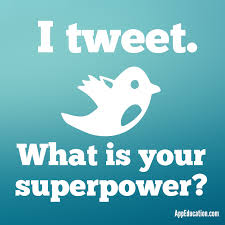
And it’s when the veil slips that I think this latent aggression reveals a number of consistencies:
- There’s undoubtedly a gender dimension to this. These kind of edutweeters are, in my experience at least, exclusively male. I’m yet to meet a female teacher who puts people down in such condescending, patronising language. So, it’s absolutely a gender thing. Which leads me to….
- When calling someone out you have to show absolute belief in your rightness (or righteousness). No scintilla of doubt is tolerated – you are never going to be ‘beaten’ if you refuse to acknowledge that they might have something to say that could trigger introspection or, God forbid, a change of opinion. Besides, there’s just no time for anything other than one-line put-downs when you’re fighting on so many fronts at once (and some of these teacher’s output is prodigious).
- The most aggressive put-downs are reserved for those who have either never taught in a school or to those with a significantly higher follower-ship than their own. And you are considered fair game if you meet both of those criteria. So, some of the worst vitriol has been reserved for @SirKenRobinson, @Sugatam (Sugata Mitra), and Graham Brown-Martin. Is there some latent jealousy there, or just a desire to ‘call out’ the bigger kid in the playground?
It’s relatively easy to spot the sort of edu-tweeter I mean. Just go on their profile, read their tweets and see how far you have to go before you see ‘This tweet is not available’. Not that being blocked seems to bother them – in fact it seems to be seen as a notch on the belt, and the bigger the profile of the blocker, the greater the pleasure for the blockee.
Now, I’m not in the league of celebrity of Sir Ken and Sugata, but just so you know, lads (and it is just lads): In the past six years I’ve had two different forms of cancer, a stroke, a heart operation and last year I nearly died of sepsis – during that latest illness I had more bile floating around my system than a year’s worth of Twitter abuse. So, there isn’t a put-down or insult you can imagine that would possibly bother me, but my final point is not a personal, but a professional, one.
I left the last institution I worked for because I realised that I couldn’t say what I really felt about education without it reflecting on that institution. Despite all the disclaimers (“all views my own, not my school’s”) Twitter is a public forum and you do represent your school or college when you Tweet. Some of your students read them, your work colleagues read them, and others inevitably assume those views, values and behaviours are reflective of your host school.
When you’re generous and respectful to others (take a bow @stringer_andrea and @corisel) you are a credit to your school. But when you can’t find a way to disagree agreeably, then don’t be surprised if your employer takes a view.
I know that only a small percentage of teachers are on Twitter anyway, and the overwhelming majority use it to genuinely learn from others. But teachers do have role-model responsibilities – so can we lay off the ‘calling out’ macho pretence, please?
If you’re reading this as a teacher who is new to Twitter, you might be wondering if you should go elsewhere for your professional development. Well, please don’t be put off. As I said at the start, it’s a small minority and the bulk of educators on Twitter are as willing to listen and learn as they are to share and comment.
I wrote in OPEN that social media is morally neutral – it merely holds up a mirror to ourselves. But I also wrote that it’s barely a decade old, and we’re still working out the etiquette. Initially, I was inclined just to ignore those men behaving badly as in the “don’t get involved, it’ll only encourage them”. But I’ve now decided to try a different tack. If I see someone being dismissively abusive, I’m going to try (and no doubt I’ll lapse) a strategy of polite but persistent questioning. I don’t think it serves much purpose to react in kind, but neither do any of us learn anything from a dialogue where a valid question is met with instant scorn.
I’d invite you to do the same. Just ask polite, but persistent questions, so that a one-liner has to be explained and a discourteous personal bard has to be brought back to the point under discussion. Who knows if enough people do it, maybe they’ll either exhaust themselves, or adopt a more respectful tone? One can only hope that, in time, we’ll eventually have a Twitterverse where ‘thinking’ precedes ‘critical’.
I await the first ‘sanctimonious codswallop’ with anticipation….

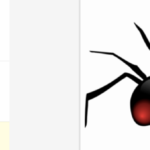
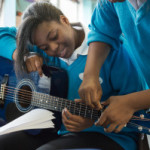
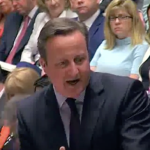

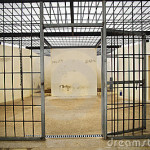
Thanks for this. I’ve challenged people on Twitter myself but really try to be civil. As an ITE lecturer I feel it is important to demonstrate and model criticality but realise, even with social media where hierarchies are flatter, there is a risk of causing upset and that does not help anyone in education. I suppose it would be good for peers and friends to point out if someone has overstepped the mark. Anyway a thought provoking post so thanks!
Online discourtesy is the new road rage. I’ve been surfing the net since the very early days, and it’s always been the same. I remember how disconcerted I was by the first flame wars between otherwise normal people. In one group, we all eventually met up and old enemies were nice as pie to each other, in the flesh, so to speak. I’m still a bit taken aback by seemingly personal attacks and an unwillingness to brook any disagreement or to discuss rather than simply assert, but I feel I’ve now had 20 or so years of maintaining my cool and filtering. It’s going to have to be a skill we learn.
“Because, sir, teaching young gentlemen has a dismal effect upon the soul.It exemplifies the badness of established, artificial authority. The pedagogue has almost absolute authority over pupils: he often beats them and insensibly he loses the sense of respect due to them as fellow human beings.He does them harm, but the harm they do him is far greater. He may easily become the all-knowing tyrant, always right, always virtuous; in any event he perpetually associates with his inferiors, the king of his company; and in a surprising short time alas this brands him with the mark of Cain. Have you ever known a schoolmaster fit to associate with grown men?” -Patrick O’Brian